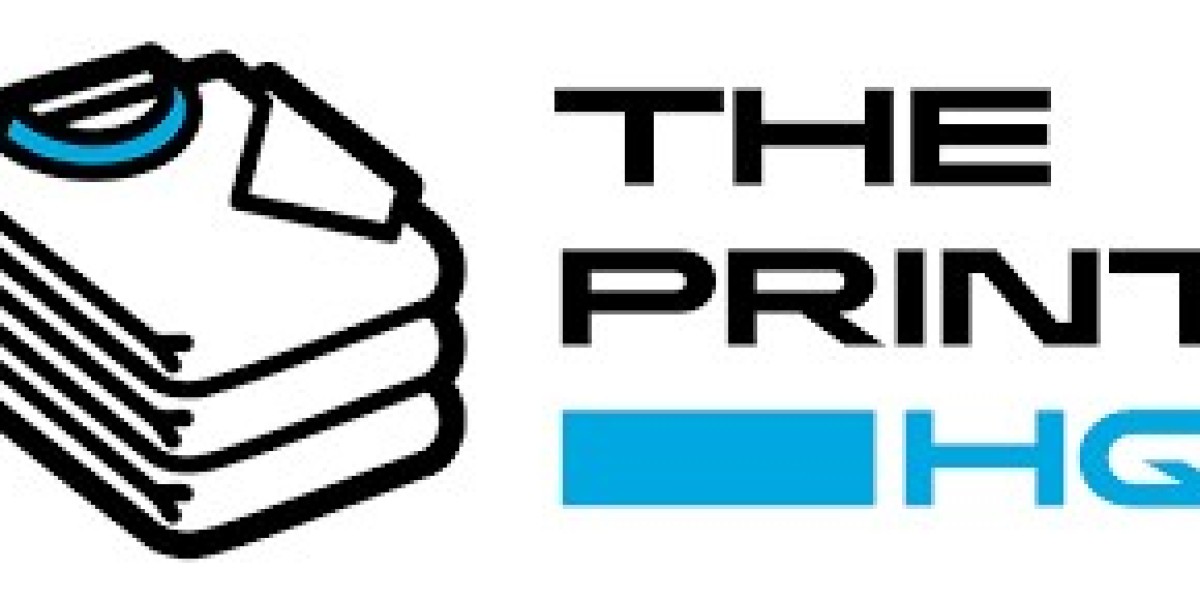Experience the Best in Custom Apparel with The Print HQ – Sydney’s Premier Printing & Embroidery Experts
In the heart of Australia’s fashion-forward city, Sydney, personalized clothing has become more than just a trend—it's a statement. Whether you're running a promotional campaign, hosting an event, or looking for standout branded apparel, The Print HQ is your trusted partner for premium Live T-shirt Printing Sydney, On-site T-shirt Printing Sydney, Custom embroidery services Sydney, and high-quality DTF Printing Sydney.
Why Personalised Apparel Is Essential for Businesses and Events
Custom printed and embroidered apparel isn’t just about style—it’s about identity. Businesses leverage custom t-shirts and embroidered uniforms to boost brand recognition, create unity among teams, and leave a lasting impression on clients. Meanwhile, event organizers and individuals turn to live or on-site printing to create memorable, interactive experiences that guests love.
At ThePrintHQ.com.au, we bring together innovation, craftsmanship, and customer-first service to help you meet your apparel goals—no matter how big or small.
Live T-shirt Printing Sydney – Engage Your Audience in Real-Time
Imagine having a T-shirt printing station at your event where attendees can get shirts printed on the spot. Sounds exciting, right? Our Live T-shirt Printing Sydney service is designed exactly for that. Whether it’s a festival, product launch, university event, or corporate gathering, we bring the magic of printing directly to your location.
With our mobile printing setup, your guests can choose from custom designs and watch as their personalized T-shirt is printed right before their eyes. It’s interactive, fun, and provides a unique takeaway that keeps your brand in their memories.
On-site T-shirt Printing Sydney – Professional Printing at Your Location
Need the same high-quality T-shirt printing experience at your office, retail outlet, or trade show? Our On-site T-shirt Printing Sydney service is tailored for businesses and organizations that want a hassle-free, efficient printing solution brought to them.
At The Print HQ, we understand the dynamics of running a successful event. Our team handles everything—from setup and design to printing and packaging—ensuring that your guests or staff receive professionally printed apparel without any delay or disruption. Whether it's 50 shirts or 500, our on-site solutions scale with your needs.
DTF Printing Sydney – Next-Level Print Technology for Vibrant Designs
When it comes to modern T-shirt printing, DTF Printing Sydney (Direct-to-Film) stands out as one of the most versatile and high-quality options available. Unlike traditional methods, DTF printing allows for incredibly detailed, full-colour designs to be transferred onto fabric with precision and durability.
At The Print HQ, we use cutting-edge DTF technology to ensure that your graphics, logos, and illustrations come out vibrant and long-lasting—whether it’s a one-off order or a bulk production run. Ideal for custom apparel brands, promotional merchandise, and small business uniforms, DTF is the future of textile printing.
Custom Embroidery Services Sydney – Elegance & Durability in Every Stitch
Embroidery offers a classic, professional finish that stands the test of time. At The Print HQ, our Custom embroidery services Sydney are tailored for clients who demand sophistication and durability in their branded clothing.
From polo shirts and jackets to hats and tote bags, our embroidery services deliver exceptional detail and texture, making them perfect for corporate apparel, school uniforms, and hospitality wear. We offer fast turnarounds, quality assurance, and customized solutions to meet your branding goals.
Embroidery in Sydney – Local Craftsmanship You Can Trust
Looking for trusted local experts in Embroidery in Sydney? The Print HQ is proud to serve businesses and individuals across Sydney with reliable, high-quality embroidery solutions. Our in-house team ensures that every stitch aligns with your design, using industry-leading machines and premium threads.
By choosing a Sydney-based provider, you benefit from faster communication, quicker delivery, and the confidence that comes from working with a team who understands local business needs and trends.
What Sets The Print HQ Apart?
1. Full-Service Customisation
From DTF and screen printing to embroidery and vinyl transfers, we offer a complete range of services to suit every project.
2. Mobile Printing Capabilities
Our Live and On-site T-shirt Printing in Sydney services set us apart by adding excitement and engagement to events of any size.
3. Premium Quality Products
We source only the best T-shirts and materials to ensure your apparel looks great and lasts longer.
4. Quick Turnarounds & Transparent Pricing
Need it fast? We’ve got you covered. We pride ourselves on prompt delivery without compromising on quality. Plus, no hidden charges—just honest, upfront pricing.
5. Locally Owned, Community Focused
Based in Sydney, we are committed to supporting local events, businesses, and creators with exceptional service and craftsmanship.
Ideal For:
- Corporate Events & Conferences
- Festivals & Live Activations
- Sports Teams & Clubs
- Schools & Universities
- Small Business Uniforms
- Promotional Campaigns
- E-commerce Merchandise
How to Get Started
- Contact Us: Let us know your project details, quantities, and deadlines.
- Choose Your Service: Whether it's DTF printing, embroidery, or on-site printing, we guide you to the best solution.
- Design & Approve: Upload your artwork or work with our in-house designers.
- Production Begins: We get to work—delivering quality products on time, every time.
- Delivery or Live Setup: We ship your order or arrive at your venue for live/on-site service.
Ready to Elevate Your Brand with Custom Apparel?
Whether you need vibrant prints, elegant embroidery, or an unforgettable live event experience, ThePrintHQ.com.au is your go-to destination for all things custom apparel in Sydney.
? Explore our specialized services:
Live T-shirt Printing Sydney
On-site T-shirt Printing Sydney
Custom embroidery services Sydney
Embroidery in Sydney
DTF Printing Sydney
Contact us today to discuss your project or get a quick quote. Let’s bring your brand to life—one shirt at a time.








